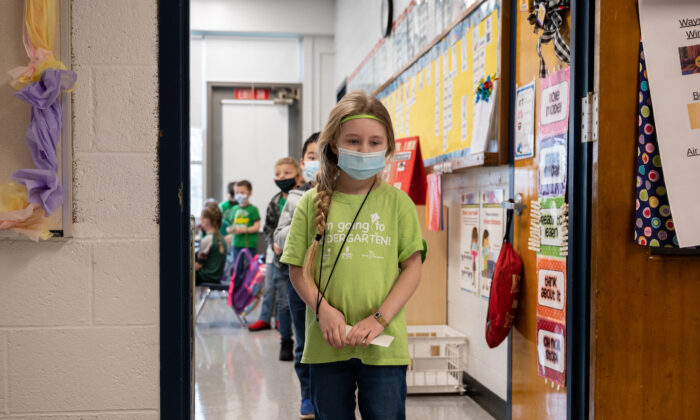It has become clear over the past several months that the U.S. public education system is a failure. Reading and mathematics scores in K-12 schools were falling even before the COVID pandemic began, but the learning loss students have suffered as a result of school closures has set them back years. It’s estimated that 40% of elementary school students are below grade level in both reading and mathematics. More than 70% of public schools have reported chronic absenteeism among their students, and nearly 90% said their students’ social and emotional development has been stunted significantly.
At the same time, liberal teachers unions and public schools have launched an aggressive effort to force a radical ideology onto students and their parents. Toxic theories such as gender ideology and critical race theory are now commonplace in the classroom, as many families discovered during their children’s pandemic Zoom classes. And although parental pushback against leftist ideology has had a significant impact in many states such as Virginia, the fact remains that powerful institutions, from teachers unions to the Education Department itself, are trying to turn students into leftist ideologues rather than educate them.
Parents need to be able to take students out of this system and set them free to learn. They deserve choice — the ability to send their children to a school that best fits their academic needs and reflects their values. And they need to be able to do so without worrying whether they’ll be able to afford it.
That’s why it is so important to empower families in education. It is why we’ve partnered with leading thinkers and organizations this week to remind families that the education system is supposed to serve them — not the other way around. Children are more important than preserving entrenched systems and vested interests.
There are a number of ways to do this. Arizona’s educational school choice voucher program, for example, makes sure taxpayers’ education dollars follow the student to whichever school — public, charter, or private — his parents choose. Florida’s parental rights bill guarantees curricular transparency and makes sure parents, not school officials, have the final say over the upbringing of their children. And Michigan’s school-of-choice program allows parents to move children from one school to a better-performing one within the same district.
Each of these policies fits a different need, but the goal is the same: to help families make the most of educational opportunities and give students the chance to thrive. They also offer citizens a way to hold the public education system accountable when it underperforms or violates parents’ wishes. This accountability in turn will force public schools to start meeting families’ needs and expectations rather than ignoring them.
School choice benefits everyone. Taxpayers will have more say over where their hard-earned dollars go. Parents will have the freedom to do what’s best for their children. Students will have the opportunity to be a part of an educational environment that wants them to learn and succeed. The only people who stand to lose are those who have been using the public education system as their personal slush fund and ideological recruitment camp. It’s well past time we stopped letting them control the debate.
Education is the most powerful policy tool we have, which is why the Left has focused on it. But, under proper control, it would allow parents to raise the next generation to understand and cherish the values that made this country great. Education has the power to change lives. It is a good in and of itself, and a means by which human beings learn how to think and act. Education not only sets children up for future material success but forms their characters and helps them live the kind of life for which they were created. Who better, then, to play the fundamental role in determining what that education looks like than the families to which they belong?

